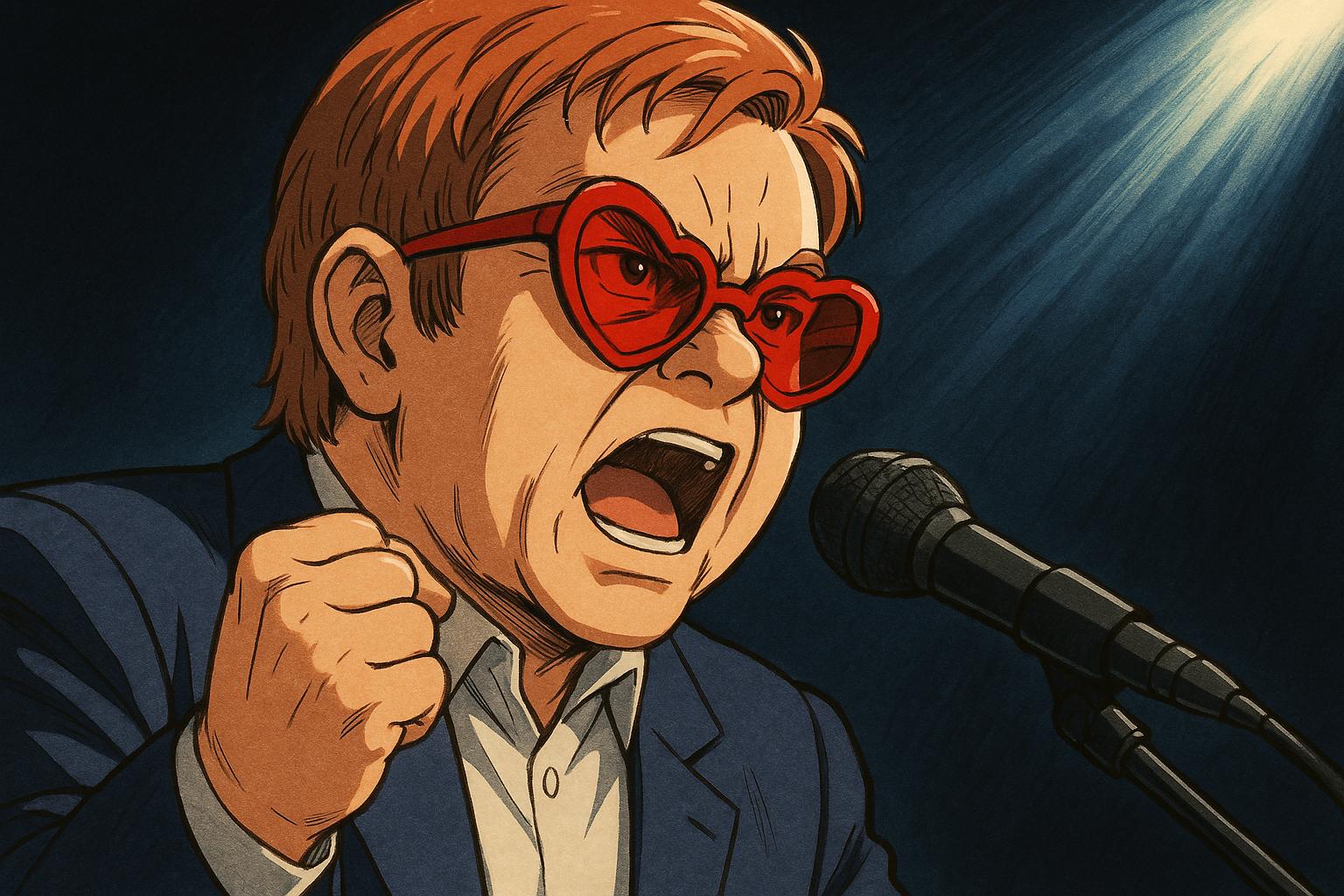Music superstar Sir Elton John has fiercely condemned the UK government's proposed Data Use and Access Bill, asserting that it represents "theft on a grand scale." The 78-year-old artist argues that the legislation would allow major tech companies to utilise artists' work for AI training without obtaining proper permission or compensation, raising serious concerns about the future rights of creators.
Speaking passionately to the BBC, John expressed his frustrations, labelling government officials as “absolute losers” for what he perceives as a betrayal of the artists who have significantly contributed to Britain's cultural identity. He voiced particular concern for emerging artists, many of whom lack the resources necessary to effectively defend their work against the encroachments of well-resourced tech firms. “It’s criminal and I feel incredibly betrayed,” John remarked, underlining the ethical implications of allowing AI to operate unchecked within the creative arena.
The proposed bill has sparked an intense debate within the arts community. Currently, it would permit AI developers to train their models on creative works—including music, literature, and visual art—unless creators proactively opt out. Critics warn that this creates an almost impossible burden on artists to monitor and protect their own work, especially when faced with the financial capabilities of large tech firms.
John underscored a fundamental tenet of artistic creation, stating, “A machine hasn’t got a soul, hasn’t got a heart, it doesn’t possess human feeling, it doesn’t have passion.” This sentiment resonates widely among artists and advocates who fear that allowing machines to use their creative output without consent diminishes the human connection intrinsic to art.
The legislative journey of this bill has been tumultuous. While the House of Lords sought to amend it, insisting that tech companies secure permissions before using copyrighted content, the subsequent rejection by the House of Commons has left its future uncertain and the creative community in a state of outrage. More than 400 prominent artists—including the likes of Paul McCartney, Ed Sheeran, and Andrew Lloyd Webber—have signed an open letter to Prime Minister Keir Starmer urging for enhanced copyright protections in the evolving landscape of AI technology.
Tom Kiehl, the CEO of UK Music, has echoed John’s concerns, warning that the government seems “on the brink of offering the UK’s world-leading music industry as a sacrificial lamb.” He contends that allowing AI to exploit creative works without proper permissions would be a “catastrophic mistake,” endangering the very foundation of emerging talent.
In response to widespread dissent, government officials assert that they are committed to developing a balanced policy that considers both the needs of the creative industries and the ambitions of AI development. They claim to be engaging with stakeholders to ensure that any changes serve the interests of creators, but these assurances have done little to quell the growing fears among artists and rights holders.
Elton John has pledged to continue the fight against the bill, even threatening legal action if necessary. “We will fight this every step of the way,” he proclaimed, urging Prime Minister Starmer to "get a grip" and to uphold the integrity of the arts against what many perceive as an encroaching threat from technological advancements.
As the debate over AI, copyright, and the future of creativity unfolds in the UK, what remains at stake is significant: the fundamental right of artists to control and be compensated for their own work. With the bill currently stalled in legislative limbo, both proponents and opponents are bracing for a protracted battle, one that may have profound implications for the relationship between human creativity and artificial intelligence moving forward.
The growing unrest among the artistic community has manifested in various forms, including a silent protest album titled "Is This What We Want?", featuring contributions from over 1,000 British musicians, including John himself. The album—which consists of recordings of empty studios—symbolises the potential loss of creative control and aims to raise awareness of the urgent need to protect artistic rights.
As discussions continue, it is evident that the future of the UK’s creative industries hangs in the balance, with many artists advocating for strong copyright laws that safeguard their livelihoods and ensure that their contributions are not reduced to mere fodder for machine learning.
Reference Map
- Paragraphs 1, 2, 3, 4, 5, 6
- Paragraph 2, 3
- Paragraph 4
- Paragraph 4
- Paragraph 5
- Paragraph 6
- Paragraph 7
Source: Noah Wire Services
